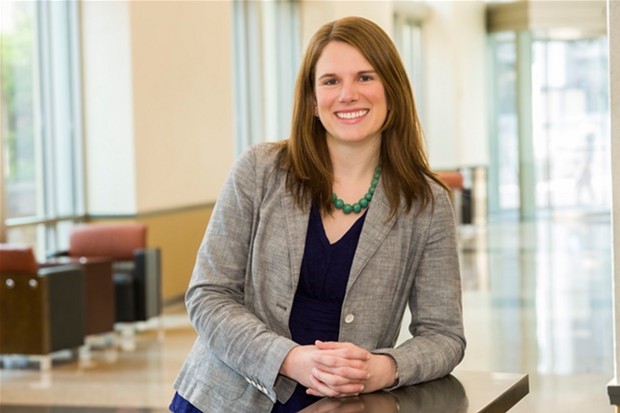Failure to expand ACA Medicaid coverage widens disparities in breast and cervical cancer screenings

Virginia Commonwealth University Massey Cancer Center researchers recently conducted a study that found low-income and uninsured women in states that are not expanding their Affordable Care Act Medicaid coverage are less likely to receive breast and cervical cancer screenings compared to those in states that are implementing expansions.
The ACA is allowing states to extend their Medicaid health insurance coverage for nonelderly adults with an annual income up to 133 percent of the federal poverty line. However, only approximately half of the states are expanding their Medicaid eligibility.
"I was interested in what the Medicaid expansion means in socio-economic terms," said Lindsay Sabik, Ph.D., a member of the Cancer Prevention and Control research program at Massey and the study's lead author.
The findings were published in the American Journal of Preventive Medicine and highlighted in the Journal of the American Medical Association. In the study, Sabik and colleagues Cathy Bradley, Ph.D., and Wafa Tarazi looked at the potential impact of the ACA on women's cancer screenings for low-income and uninsured populations in the states implementing expansion and the states that are not. Bradley is associate director for cancer prevention and control and Theresa A. Thomas Memorial Foundation Endowed Chair in Cancer Prevention and Control at Massey and chair of the VCU Department of Healthcare Policy and Research. Tarazi is a doctoral candidate and graduate research assistant at the VCU School of Medicine.
Using pre-ACA, self-reported data from the 2012 Behavioral Risk Factor Surveillance System (BRFSS), the team analyzed differences of income, race and ethnicity for women ages 52-64 years who followed U.S. Preventive Services Task Force guidelines and underwent a mammogram within two years, and women ages 24-64 years who followed the task force's recommendations and had Pap tests performed within three years. The BRFSS is a telephone survey conducted in all 50 states by the U.S. Centers for Disease Control to collect public health data.
The researchers found that women who do not have health insurance are significantly less likely to get regular mammograms and Pap tests. The study results suggest that uninsured women in nonexpansion states are less likely to receive potentially lifesaving breast and cervical cancer screenings by 7.9 percent and 4.9 percent, respectively.
Sabik points out that as Medicaid coverage expands and women in nonexpansion states, who are more likely to be low-income and African-American than in expansion states, continue to lack health insurance coverage, the disparities in breast and cervical cancer screenings may continue to widen. She advises that nonexpansion states should pay attention to existing disparities in preventive care across populations. She suggests that officials consider the costs and benefits of Medicaid expansion for these groups and whether the expansion might narrow the gap in coverage for potentially lifesaving breast and cervical screenings.
"There's a lot that still needs to be done to make the Medicaid program more consistent across states to give all women fair access to cancer screenings," said Sabik, who is also an assistant professor of health care policy and research at the VCU School of Medicine.
More information: "Disparities in Women's Cancer Screening," American Journal of Preventive Medicine, Volume 48, Issue 1, January 2015, Pages 98-103, ISSN 0749-3797, dx.doi.org/10.1016/j.amepre.2014.08.015
















